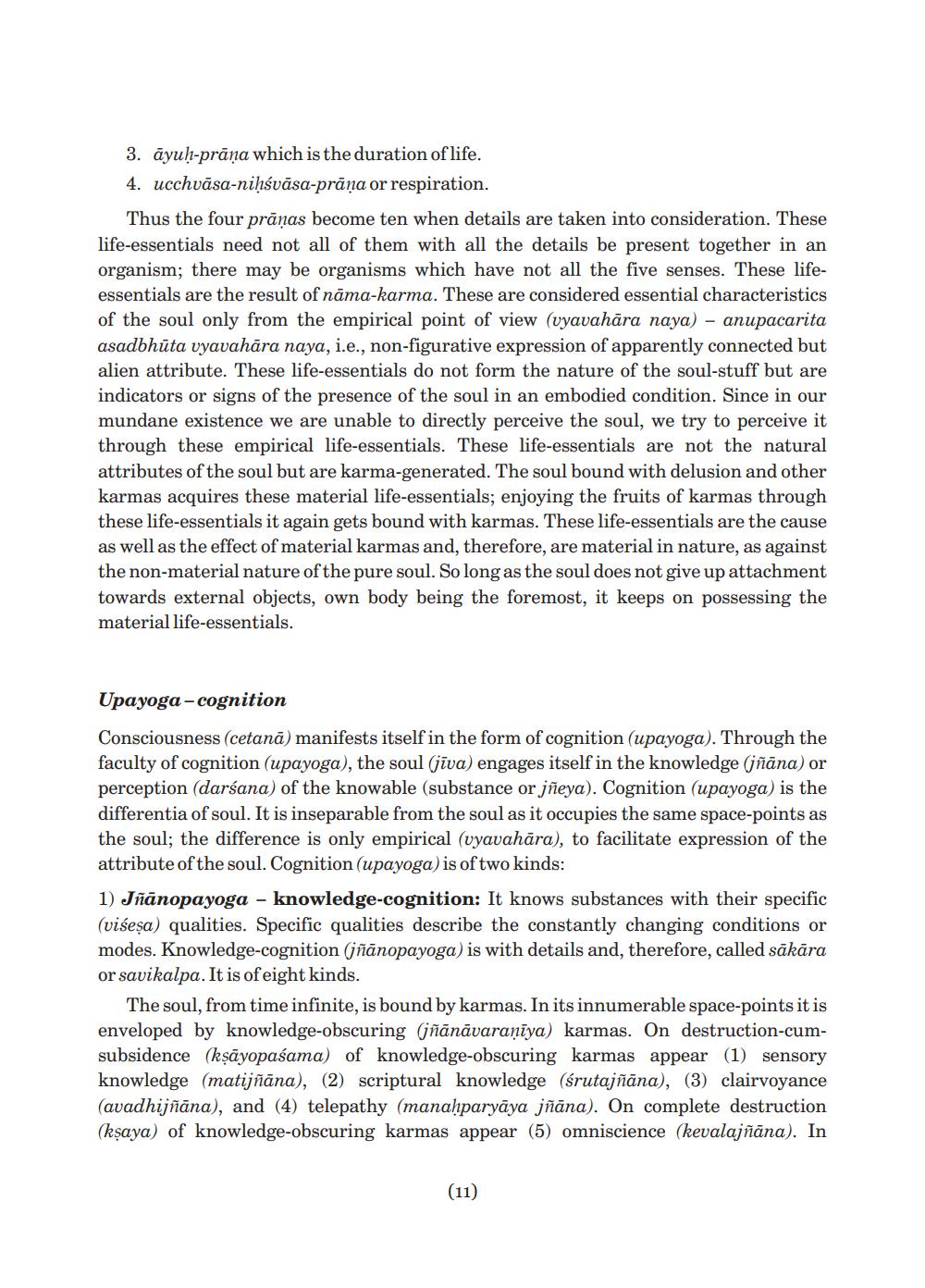________________
3. āyuh-prāņa which is the duration of life. 4. ucсhvāsa-nihśvāsa-prāņa or respiration.
Thus the four prāṇas become ten when details are taken into consideration. These life-essentials need not all of them with all the details be present together in an organism; there may be organisms which have not all the five senses. These lifeessentials are the result of nāma-karma. These are considered essential characteristics of the soul only from the empirical point of view (vyavahāra naya) - anupacarita asadbhūta vyavahāra naya, i.e., non-figurative expression of apparently connected but alien attribute. These life-essentials do not form the nature of the soul-stuff but are indicators or signs of the presence of the soul in an embodied condition. Since in our mundane existence we are unable to directly perceive the soul, we try to perceive it through these empirical life-essentials. These life-essentials are not the natural attributes of the soul but are karma-generated. The soul bound with delusion and other karmas acquires these material life-essentials; enjoying the fruits of karmas through these life-essentials it again gets bound with karmas. These life-essentials are the cause as well as the effect of material karmas and, therefore, are material in nature, as against the non-material nature of the pure soul. So long as the soul does not give up attachment towards external objects, own body being the foremost, it keeps on possessing the material life-essentials.
Upayoga-cognition
Consciousness (cetană) manifests itself in the form of cognition (upayoga). Through the faculty of cognition (upayoga), the soul (jīva) engages itself in the knowledge (jñāna) or perception (darśana) of the knowable (substance or jñeya). Cognition (upayoga) is the differentia of soul. It is inseparable from the soul as it occupies the same space-points as the soul; the difference is only empirical (vyavahāra), to facilitate expression of the attribute of the soul. Cognition (upayoga) is of two kinds: 1) Jñānopayoga - knowledge-cognition: It knows substances with their specific (visesa) qualities. Specific qualities describe the constantly changing conditions or modes. Knowledge-cognition (jñānopayoga) is with details and, therefore, called sākāra or savikalpa. It is of eight kinds.
The soul, from time infinite, is bound by karmas. In its innumerable space-points it is enveloped by knowledge-obscuring (ñānāvaraṇīya) karmas. On destruction-cumsubsidence (kṣāyopasama) of knowledge-obscuring karmas appear (1) sensory knowledge (matijñāna), (2) scriptural knowledge (śrutajñāna), (3) clairvoyance (avadhijñāna), and (4) telepathy (manahparyāya jñāna). On complete destruction (kşaya) of knowledge-obscuring karmas appear (5) omniscience (kevalajñāna). In
(11)




